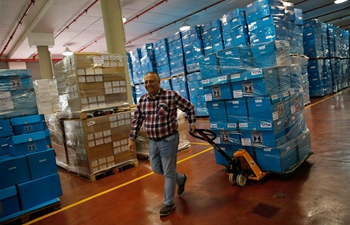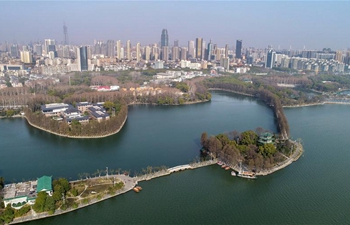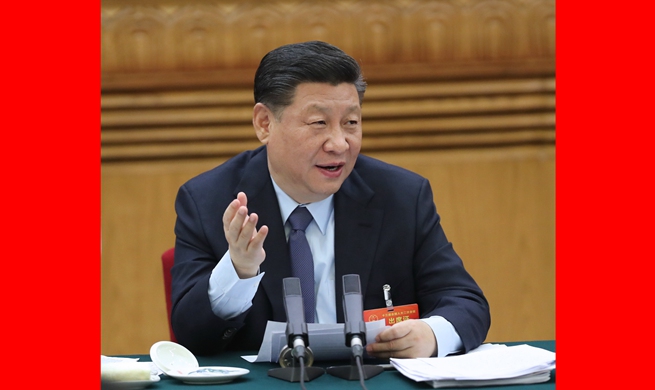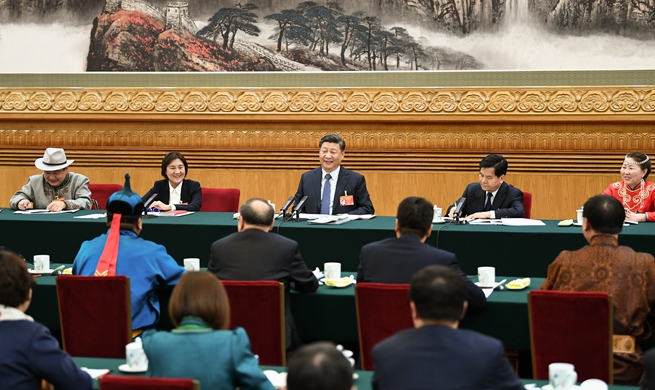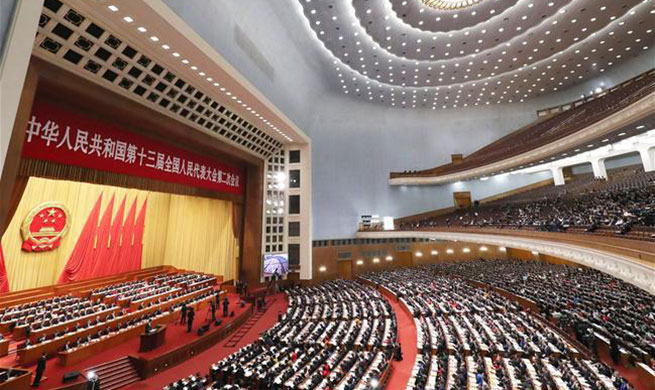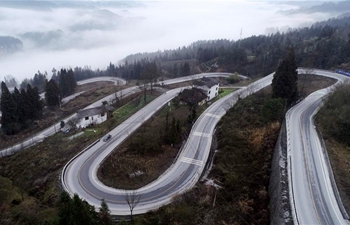CAPE TOWN, March 8 (Xinhua) -- President Cyril Ramaphosa on Friday launched a national crusade to mobilize citizens, business, industry, labor and civil society at large towards a common goal - cleaning up South Africa.
"A clean environment is feasible and is necessary, and, ultimately, will become an important source of national pride," Ramaphosa said while launching the Good Green Deeds Campaign in Buffalo City, Eastern Cape Province.
The president expressed hope that the nationwide drive will be embraced with vigor and enthusiasm in all municipalities around South Africa.
"So let us commit today, right here and right now, that we will each do one Good Green Deed a day, for the sake of ourselves, for the sake of others, and for the sake of our country," Ramaphosa said.
The campaign is designed to encourage more South Africans to recycle their waste and conduct clean-up activities to help their municipalities cope with waste management.
"Our population is growing, and more and more people are moving to the cities, leading to more waste being generated despite diminishing space for landfills," Ramaphosa said.
A STEP IN THE RIGHT DIRECTION
He blamed apartheid for low recycling rates in the country, saying that as apartheid ended in the early 1990s, most households in black communities lacked access to basic refuse removal services.
It has been under the government led by the African National Congress (ANC) that environmental rights and laws have been enforced, Ramaphosa said.
The country has implemented a national policy to address the inability of millions of poor households to pay for waste services, according to the president.
Currently the number of South African households with access to waste services is close to 80 percent, compared to 55 percent in 2001.
The number of households that have refuse removal at least once a week is on the rise, increasing from 56 percent in 2002 to approximately 66 percent in 2017.
"The increase is a step in the right direction. Yet we know we can still do more. We must do more to build the capacity of local government to provide services to our people," Ramaphosa said.
He encouraged more cities to focus on the recycling economy by upgrading buy-back centers, leading waste separation at source initiatives and keeping street clean.
More buy-back centers will be built, and refuse removal services in rural areas will be extended, said Ramaphosa.
WASTE MANAGEMENT MODEL
In Buffalo City, South Africa is piloting a project for the environmentally sound management of hazardous waste in partnership with the Swedish government, according to the president.
Under this partnership, South Africa plans to develop a general household waste management model that will inform waste service provision in informal settlements.
"Better waste management practices also enable us as a country to address climate change because landfills are a source of emissions of gases that contribute towards global warming," Ramaphosa noted.
In line with the objectives of the government's National Development Plan, South Africa is pursuing a path of development that is low-carbon, inclusive and resilient to the impacts of climate change, he said.
The government has also worked out a national waste management strategy designed to contribute to the green economy of the waste sector, Ramaphosa said.
South Africa aims to increase the total contribution of the waste economy from 24.3 billion rand (about 1.7 billion U.S. dollars) to 35.8 billion rand (about 2.5 billion dollars) and create 127,000 new direct and indirect jobs by 2023, according to the president.


